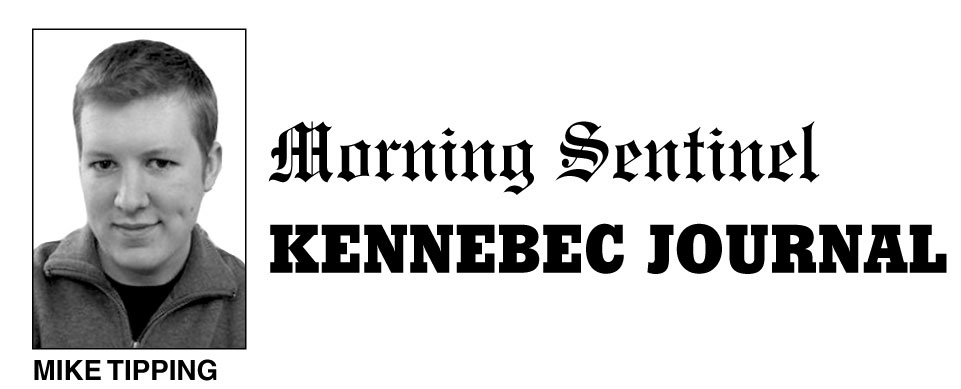We’re No. 2!
Maine now places the second-highest financial burden on our college students among the 50 states, edged out of first place only slightly by Mississippi.
The debts we saddle young Mainers with aren’t just cruel, they’re self-defeating. These are the people who should be creating new jobs. We need them to be starting new businesses and bringing new industries to the state.
Instead, their debt levels mean they can barely afford to stay in Maine, much less engage in entrepreneurship.
Our No. 2 ranking was determined by taking the debt a Maine student graduating in 2009 faced ($29,143 according to the Project on Student Debt, one of the highest levels in the country) and comparing it with Maine’s median household income ($49,050, according to the U.S. Census Bureau, one of the lowest).
These numbers don’t tell the whole story, though. Institutions of higher learning have an incentive to lowball debt numbers, and they don’t have access to complete information about private loans that students may take out to pay for their education. They also don’t report on students who have discontinued their studies because of financial reasons.
One might think that some of this high level of debt comes from the high tuition charged by Maine’s elite private colleges, but the opposite is actually true. At Bates College, for instance, only 38 percent of students graduated with debt, and the average debt load for a member of the 2009 class was $17,945. The numbers are similar for Colby and Bowdoin.
Compare that to the University of Maine, our state’s flagship public university, where 77 percent of students graduated with debt for an average of $30,824 per student in 2009.
In fact, if we look only at public institutions that have reported their student debt levels, Maine passes Mississippi and becomes No. 1 in the nation for student debt, leaving Alabama in our dust in third place.
Things aren’t getting better, either. Graduates in 2009 paid about 75 percent higher tuition at public universities in Maine by the end of their college experience than 2005 graduates, and tuition has continued to increase in the years since.
Flat levels of funding for higher education in Gov. Paul LePage’s proposed budget will lead to a projected 4.5 percent tuition increase for students at the University of Maine in 2012.
One bright spot on Maine’s post-secondary education landscape is Opportunity Maine, the program proposed by citizen initiative and adopted by the Legislature. In 2008, the program began allowing students to apply for a state income tax credit to cover student loan payments as long as they continue to live, work and pay taxes in Maine.
The truth is, though, that we don’t yet know how Opportunity Maine is working. Only in 2010, when a law was passed to streamline and clarify the program and mandate its promotion at Maine colleges, did it become fully functional, and we won’t have numbers on uptake and effect until next year.
Two bills this session, both proposed by Republican Rep. Gary Knight, would improve the program. L.D. 835 would make the tax credit fully refundable, and L.D. 1174 would allow students who attend school out of state but move or return to Maine afterward to qualify for the credit.
Passing both of these improvements is the least Maine can do.
The real fix is lowering tuition and putting in place targeted grants to help those students who need help the most, measures that will both decrease student debt and help more Maine students choose to pursue higher education in the first place.
For years, conservative politicians pointed to numbers from the Tax Foundation to claim that we had the highest or one of the highest tax rates in the country.
Now that the foundation says our state and local taxes are only 0.3 percent higher than the national average and below other New England states, such as Connecticut, Rhode Island and Vermont, perhaps it’s time to focus on a new national ranking, one that’s much more directly linked to job creation and economic growth.
Being No. 2 in the country in student debt burden is a mark of shame for Maine now, and it says even worse things about our future as a state. Investment in higher education is one of the best ways for a government to improve economic performance over the long-term. Our failure to invest in our students is hurting Maine’s young people now, and it will hurt our state’s economy for decades to come.
Mike Tipping is a political junkie. He writes the Tipping Point blog on Maine politics at DownEast.com, his own blog at MainePolitics.net and works for the Maine People’s Alliance and the Maine People’s Resource Center. He’s @miketipping on Twitter. Email to writebacktomike@gmail.com
Send questions/comments to the editors.



Success. Please wait for the page to reload. If the page does not reload within 5 seconds, please refresh the page.
Enter your email and password to access comments.
Hi, to comment on stories you must . This profile is in addition to your subscription and website login.
Already have a commenting profile? .
Invalid username/password.
Please check your email to confirm and complete your registration.
Only subscribers are eligible to post comments. Please subscribe or login first for digital access. Here’s why.
Use the form below to reset your password. When you've submitted your account email, we will send an email with a reset code.